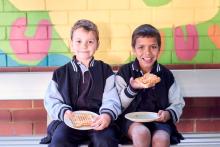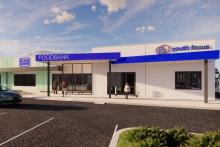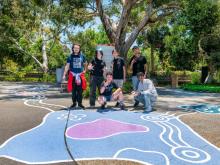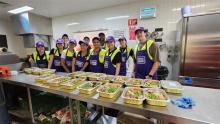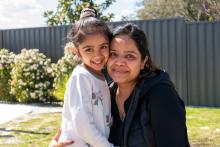This year marks the 50th anniversary of NAIDOC Week, an annual event held across Australia since 1975 to empower Indigenous voices and culture.

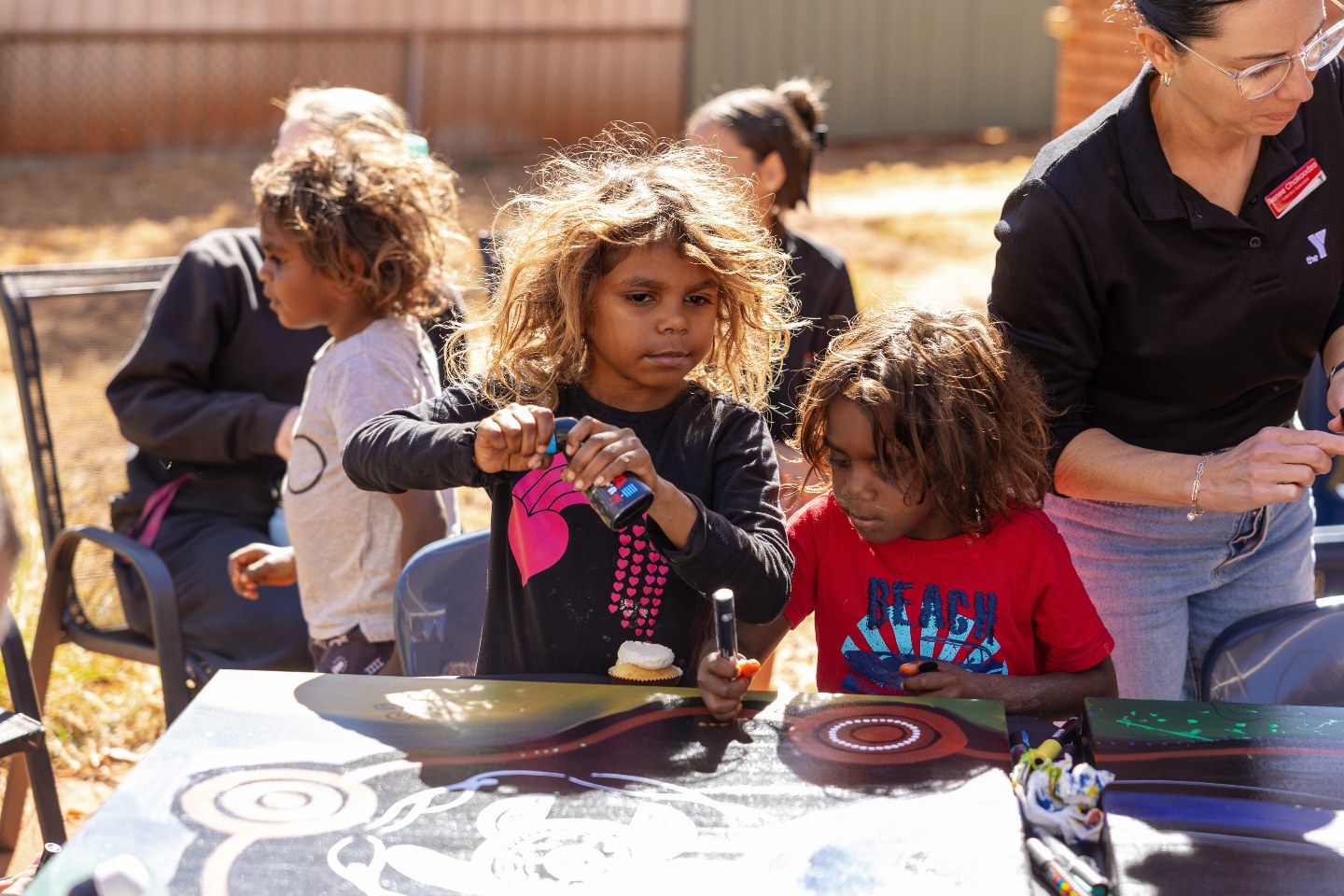
This year marks the 50th anniversary of NAIDOC Week, an annual event held across Australia since 1975 to empower Indigenous voices and culture.
NAIDOC Week 2025 runs from July 6 to 13 and falls under the theme of ‘The Next Generation: Strength, Vision & Legacy’, which aims to both recognise past achievements and celebrate a promising future.
In alignment with NAIDOC Week, the Y WA has announced the opening of its new hub in the Pilbara town of Newman, where it has started to deliver its long-running Education, Engagement and Attainment Initiative, now proudly renamed the Pakala Jijikaja Yankuni-la! program.
The new name is a Martu phrase meaning ‘Get up, young people. Let’s go!’ and was selected through extensive consultation with Elders, families and community members.
East Newman residents are some of the most disadvantaged in Australia due to high levels of income disparities, limited education and poor health, according to research by the state government.
"We are also collaborating with other service providers to ensure our community can access services they need, when they need it." The Y WA program coordinator Sammi Ryder
The Y WA’s dedicated hub provides services to help Aboriginal and Torres Strait Islander children, young people, and families to access support, strengthen cultural identity, and build positive routines around school attendance and learning.

Pakala Jijikaja Yankuni-la! team members. Photo: Sarah Stampfli, Serene Bedlam Photography
Program coordinator Sammi Ryder said creating a safe and welcoming base to settle the Pakala Jijikaja Yankuni-la! program will significantly increased the Y WA’s ability to serve the Newman community.
“Having this dedicated space for our community is a game changer and allows our services and funding from NIAA (National Indigenous Australians Agency) to target the children who are most in need, assisting us to work toward closing the gap,” Ms Ryder said.
“We will still collect young people for school in the bus every day as we always have, but now they can drop into our centre, get some food in their bellies, learn some cooking skills at the same time, and be looking sharp and ready for school, just like all their peers.
“We are also collaborating with other service providers to ensure our community can access services they need, when they need it.”
The Pakala Jijikaja Yankuni-la! program is funded by the NIAA, which supports a variety of initiatives avidly working to close the gap.
Ms Ryder said the Y WA team had been advocating for a permanent space to operate from for quite some time.
“We saw an opportunity to increase our connection to community with a dedicated space,” she explained.
“We have been championing for this since then, so to see it all fall into place just in time for NAIDOC Week is significant and will have a profound impact on our children and families.
“There is so much happening, we are so excited about what this next chapter will bring to our community.”

The Y WA's new hub is a vital investment in Western Australian children and youth. Photo: Sarah Stampfli, Serene Bedlam Photography
Operations at the Newman hub will revolve around four key commitments:
- Engagement with families to build and solidify relationships, with a focus on helping with their child’s education
- Delivering programs and events in the community that add value to the lives of families and young people that the Y WA works with
- Offering a dedicated space for Elders and families to host a new early childhood playgroup
- Building a rewards and recognition program for young people to celebrate achievements and regular school attendance.
Key partnerships were instrumental in making the new hub a reality. The Y WA secured a space in Newman to construct the Pakala Jijikaja Yankuni-la!headquarters through a lease agreement with BHP, with the central location providing high accessibility and encouraging greater community participation.
"[W]e couldn’t be prouder to launch this dedicated space and its fitting name." The Y WA CEO Tim McDonald
The Y WA chief executive Tim McDonald said the hub represented a vital investment in children and young people’s futures.
“The Y is committed to providing impactful services for children and young people,” Dr McDonald said.
“We know we can achieve impactful outcomes because it is backed by research and when we create environments that include sustained positive relationships, skill building opportunities and opportunities for contribution, we know that children, young people and families can flourish.”
The renaming of the program came to fruition after months of community conversations and yarning circles, both of which ensured the initiative effectively reflects community needs and cultural identity.
“Working closely with the community around the services we will be offering, as well as the name of the program, has been vital,” Dr McDonald said.
“Their support, wisdom and cultural knowledge has guided our work, and we couldn’t be prouder to launch this dedicated space and its fitting name.”

The Pakala Jijikaja Yankuni-la! program’s new home is centrally located, increasing accessibility.
With school transport, uniforms, lunches, referrals, outreach, food security, youth activities and cultural engagement all part of the offering, Pakala Jijikaja Yankuni-la! is more than a service – it’s a movement toward greater equity and empowerment in the Newman region.
It stands as a powerful example of how community-led and culturally responsive programs can help uplift the next generation with pride, purpose and possibility.
Culturally appropriate nutrition education
Foodbank WA has advocated for Indigenous people since it opened its doors 31 years ago.
The not-for-profit organisation has collaborated closely with Aboriginal communities – including health professionals – and community organisations to develop culturally appropriate nutrition education resources for Indigenous people.
“Every child deserves the opportunity to learn how to eat well, cook safely and feel good about food.” Foodbank WA CEO Kate O'hara
“Our work includes the creation of storybooks and educational materials designed to promote healthy eating habits among primary school children, while also fostering an understanding and appreciation of Aboriginal culture,” Foodbank WA chief executive Kate O’Hara said.
“Additionally, we have developed practical, budget-conscious recipe books and food literacy resources aimed at supporting community members in regional and remote areas.
“All materials have been carefully developed in alignment with the Department of Health's Aboriginal and Torres Strait Islander Guide to Healthy Eating, ensuring relevance and cultural sensitivity throughout.”

Foodbank WA teaches cooking skills and eating knowledge to young people across Western Australia.
For nearly 15 years and across several partnerships, Foodbank WA has worked with schools, communities and service providers in the Pilbara to deliver nutrition education in remote settings.
Visits to the region to deliver these services have created real and lasting impact, reaching parents groups, schools and youth, in addition to engaging the greater community through events or community-related sessions.
Ms O’Hara said Foodbank WA has delivered more than 1,000 nutrition education and cooking sessions to over 14,000 students to date.
“Impactful changes have been reported including changes in healthy eating knowledge and cooking skills in school aged children, youth between 12 and 18 years old, and parents of children five years and under,” Ms O’Hara said.
“Just last month our nutritionists travelled to three schools in remote WA delivering nine engaging nutrition education and cooking sessions to 159 students from kindy through to year ten."

Foodbank WA has delivered more than 1,000 nutrition education and cooking sessions to over 14,000 students.
“These sessions aren't just about cooking: they're about building confidence, connection and lifelong healthy habits,” Ms O’Hara continued.
“We’re incredibly grateful to Mineral Resources and PLS for supporting the nom! Schools program and helping us reach remote communities with vital food and nutrition education.”
People who identity as Aboriginal or Torres Strait Islander make up 10 per cent of Foodbank WA’s customer base, which is three times the national average of 3.3 per cent.
“We have been working with Indigenous community groups since we started and seeing households direct when we started our household card system six years ago,” Ms O’Hara said.
“There is a lot more to do and we are on the pathway to implement further meaningful and significant changes over the next few years.
“Every child deserves the opportunity to learn how to eat well, cook safely and feel good about food.”





